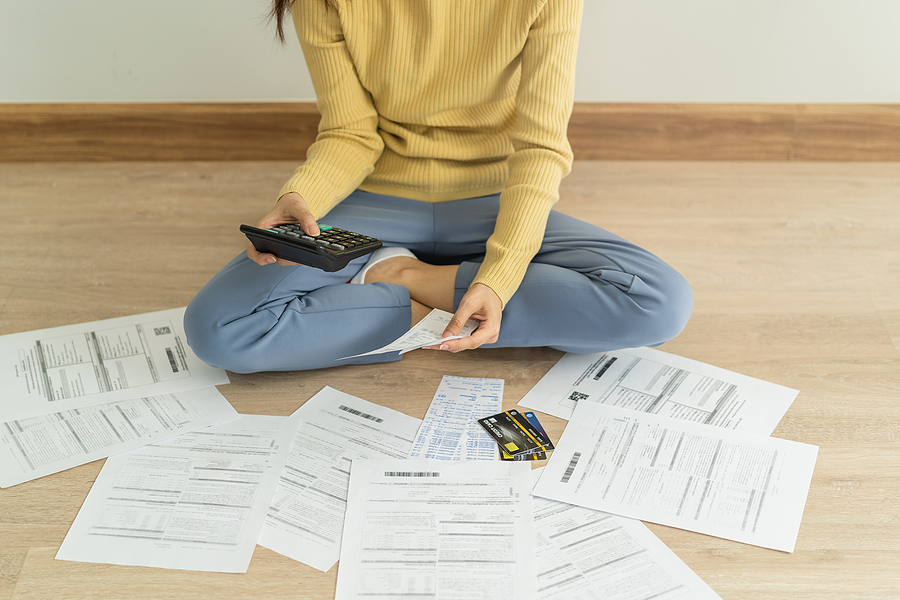One common question people have during the bankruptcy process is if bankruptcy affects taxes. They wonder how filing for bankruptcy protection will impact their tax burden. While every person’s tax situation is different, there are some commonalities worth noting about taxes and bankruptcy. Here are some things that you should know:
Bankruptcy and Back Taxes
Bankruptcy is a powerful tool to help individuals and businesses with debt relief. However, bankruptcy does not always clear all types of tax debt. Though bankruptcy affects taxes, bankruptcy will not discharge income taxes owed to the IRS unless certain conditions are met, such as filing the required tax returns on time and meeting other requirements under bankruptcy law. Even if you file for bankruptcy, the IRS may still be able to collect the amount you owe in back taxes.
If you owe taxes and are considering filing for bankruptcy, it is best to consult with a bankruptcy attorney who can explain your options under Chapter 11 or Chapter 13 of the U.S. Bankruptcy Code. In some cases, any refund you receive from a prior year’s tax return can also be taken by creditors if you file for bankruptcy.
Can a Bankruptcy Trustee Take Your Tax Refund After Discharge?
A bankruptcy trustee can take your tax refund after a discharge depending on the type of bankruptcy you file. If you file for Chapter 7 bankruptcy, a trustee will be appointed and they may be able to take your refund if it was earned after filing. However, if you file Chapter 13, the trustee will not take your refund. Instead, they will use it to help pay off creditors according to the repayment plan.
If you want to keep your tax refund, it is best to file Chapter 13 or another type of bankruptcy. It is also important to remember that a bankruptcy trustee cannot take any income earned prior to filing for bankruptcy. Therefore, if the tax refund was due before filing for bankruptcy, then it should remain safe from the hands of a bankruptcy trustee.
Automatic Stay and IRS Collection Actions
An automatic stay is an important part of bankruptcy law and can provide much-needed relief to individuals dealing with tax debt. When someone files for bankruptcy, the IRS will be notified and an automatic stay will be put in place. This means that the IRS is unable to take any action (including collections) against the debtor until a court order or agreement is reached. This means that the debtor won’t have to worry about garnishments, liens, or levies being placed on their property as a result of owing back taxes.
Additionally, any tax refund they may be entitled to from filing a tax return will remain untouched by the IRS until a resolution is reached. An automatic stay does not necessarily mean that all of your tax debt will be forgiven if you file for Chapter 13 bankruptcy; however, it can give you some breathing room while you work out a repayment plan with the IRS or negotiate a settlement. In addition, filing for Chapter 13 bankruptcy can also help protect your assets and provide additional protection from creditors while you work on paying off your back taxes.
How to File Taxes After Bankruptcy
Filing taxes after bankruptcy can be a confusing process, but it is important to understand the rules and regulations. The bankruptcy code requires that you file an individual tax return for the year in which you filed your bankruptcy, regardless of whether it was Chapter 11 or Chapter 13. If you are still in the middle of your bankruptcy case, you may need to request an extension from the IRS.
Your trustee will inform you about any specific requirements related to filing taxes after you have completed your bankruptcy case. Creditors may also be notified when you file your tax return. It is important to understand that the Bankruptcy Code requires taxpayers who have filed for bankruptcy to comply with all applicable state and federal tax laws. Therefore, it is important that even if you have filed for bankruptcy, you still must file and pay taxes on time. If you are not sure what you are doing, make sure you ask your bankruptcy lawyer who can refer you to a qualified tax accountant.
Schedule a Consultation With a St. Cloud Bankruptcy Lawyer
Bankruptcy protection can help you overcome significant financial burdens and get the restart that you need. Kain + Henehan is an experienced bankruptcy firm with offices in St. Cloud, Minnesota, and the Twin Cities. Contact us by calling (612) 438-8006 or filling out the online form. We are happy to answer any questions that you may have about the process, including giving you guidance on the impact of bankruptcy on your specific tax situation or how bankruptcy affects taxes.

